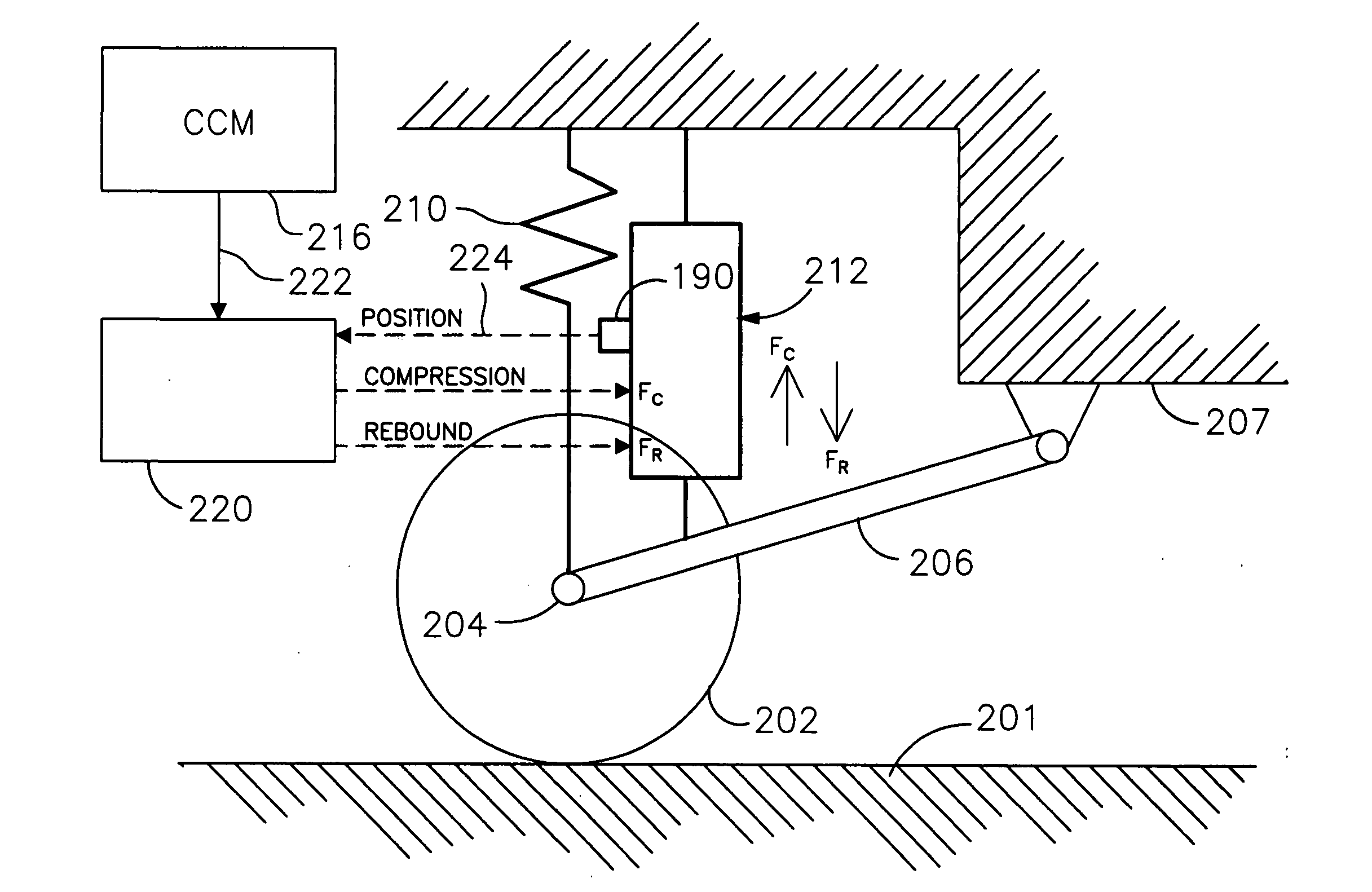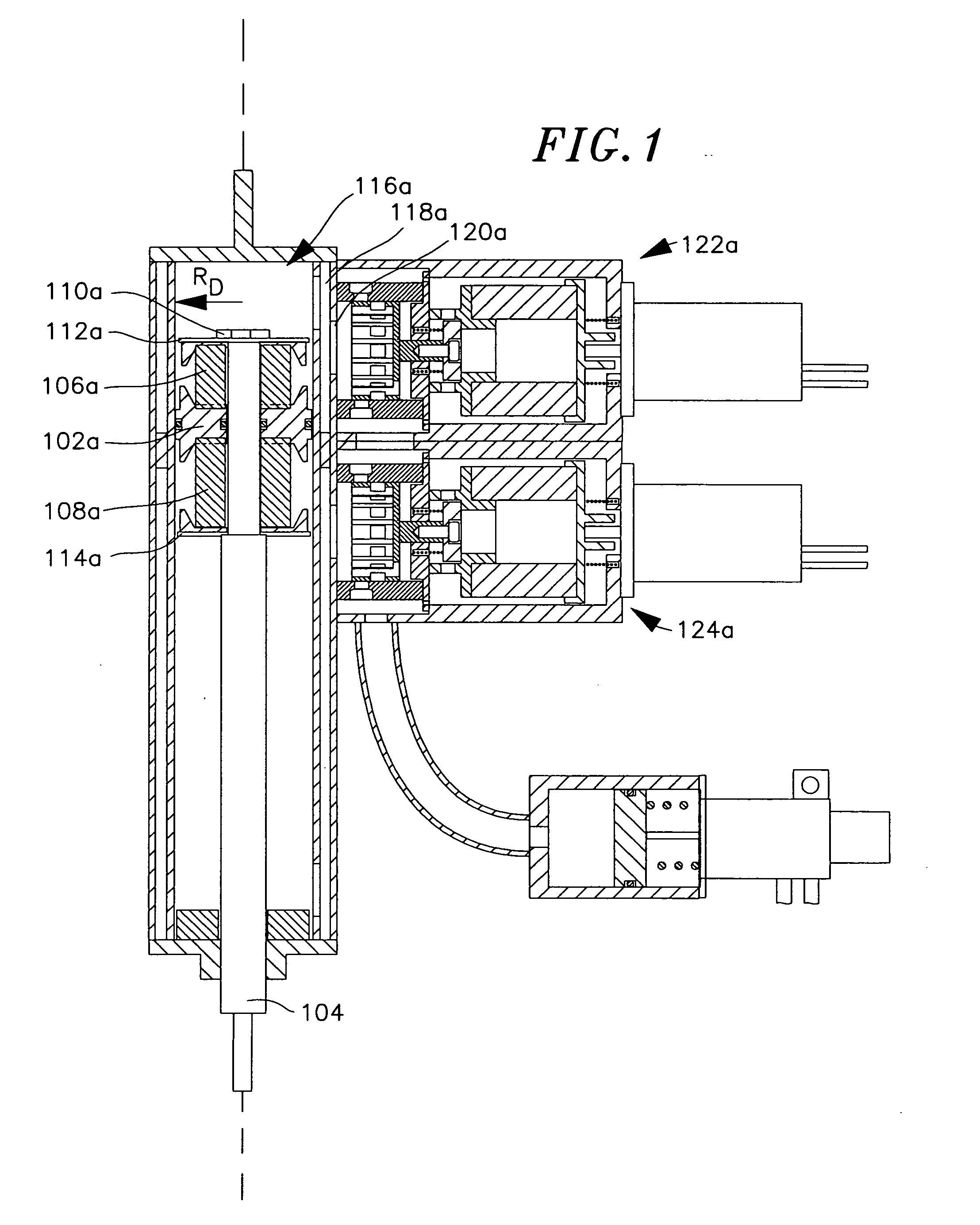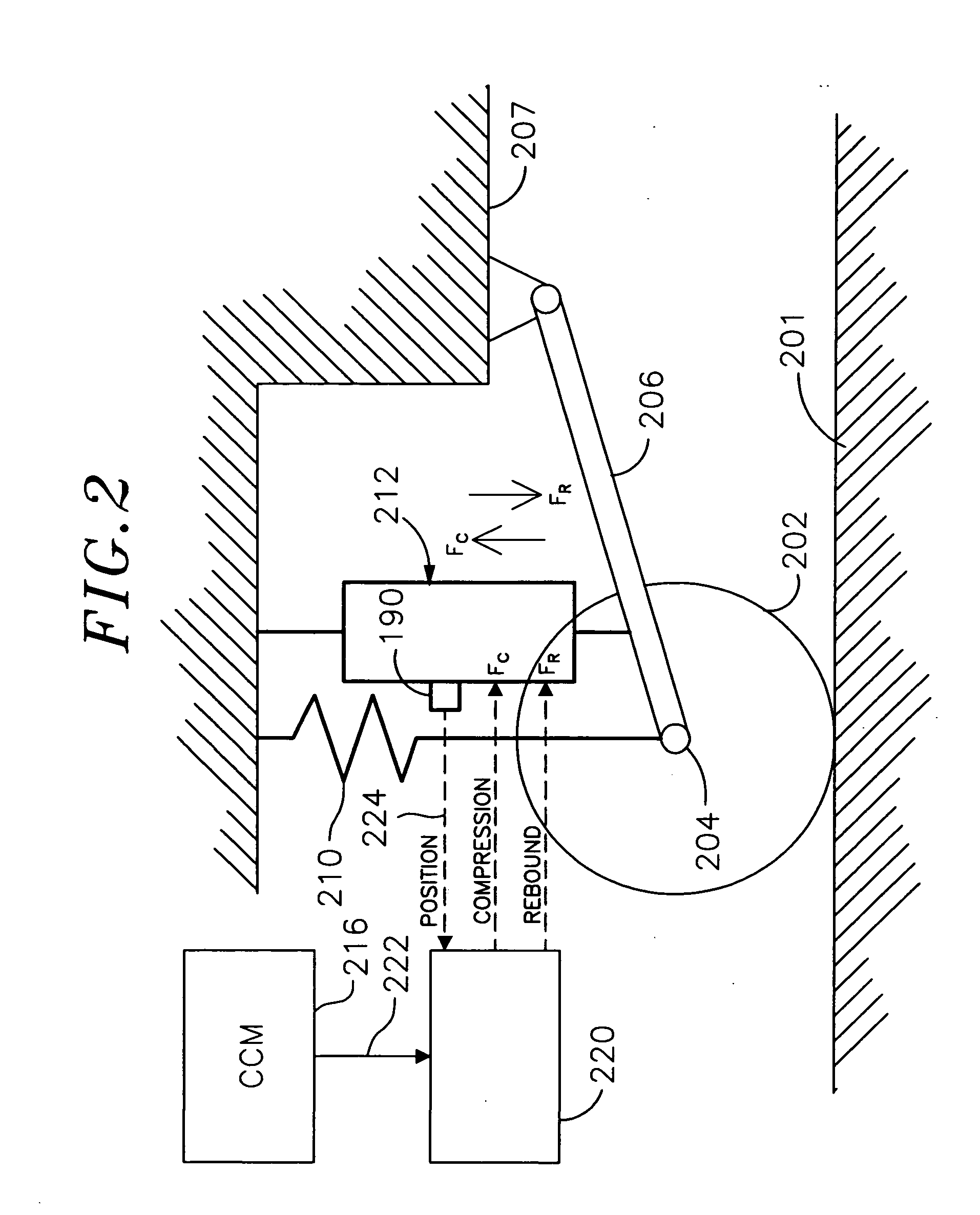Enhanced computer optimized adaptive suspension system and method
a computer-optimized, adaptive suspension technology, applied in the direction of shock absorbers, valve operating means/release devices, servomotors, etc., can solve the problems of ineffective force applied to control movement in a direction opposite to movement, inability to regulate force in the rebound direction, lack of force, etc., to achieve the effect of alleviating instability problems and increasing fluid pressur
- Summary
- Abstract
- Description
- Claims
- Application Information
AI Technical Summary
Benefits of technology
Problems solved by technology
Method used
Image
Examples
Embodiment Construction
[0052]FIG. 2 illustrates one representative wheel 202 of a plurality of wheels in a suspension system in accordance with an embodiment of the present invention. The wheel rotates on an axle 204. The axle is attached to one end of a carrier 206. The other end of the carrier is pivotally mounted to a vehicle frame or chassis 207. It is understood that a variety of wheel mounting configurations may be used. A suspension control unit 212 and a spring 210 are connected between the chassis and axle.
[0053] The wheel, axle, and carrier comprise an unsprung mass, and the frame 207 comprises a sprung mass. During operation of the vehicle the wheel will often encounter irregularities in a road surface. For example, the wheel may encounter a bump in the road, with the result that the wheel is forced towards the chassis.
[0054] The wheel can move towards the chassis (compression) or away from the chassis (rebound). To change the characteristics of the ride, compression and rebound control force...
PUM
 Login to View More
Login to View More Abstract
Description
Claims
Application Information
 Login to View More
Login to View More - R&D
- Intellectual Property
- Life Sciences
- Materials
- Tech Scout
- Unparalleled Data Quality
- Higher Quality Content
- 60% Fewer Hallucinations
Browse by: Latest US Patents, China's latest patents, Technical Efficacy Thesaurus, Application Domain, Technology Topic, Popular Technical Reports.
© 2025 PatSnap. All rights reserved.Legal|Privacy policy|Modern Slavery Act Transparency Statement|Sitemap|About US| Contact US: help@patsnap.com



